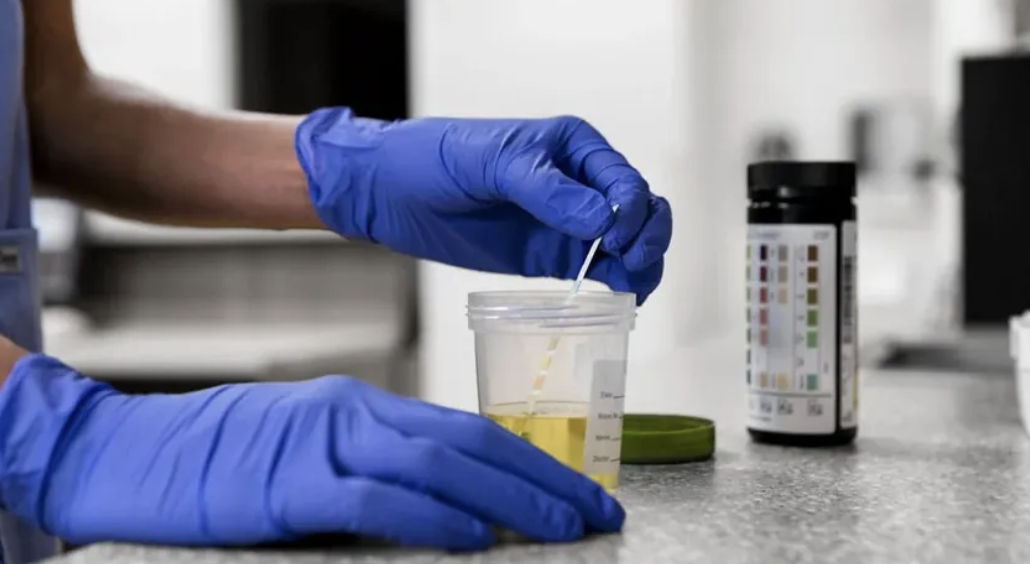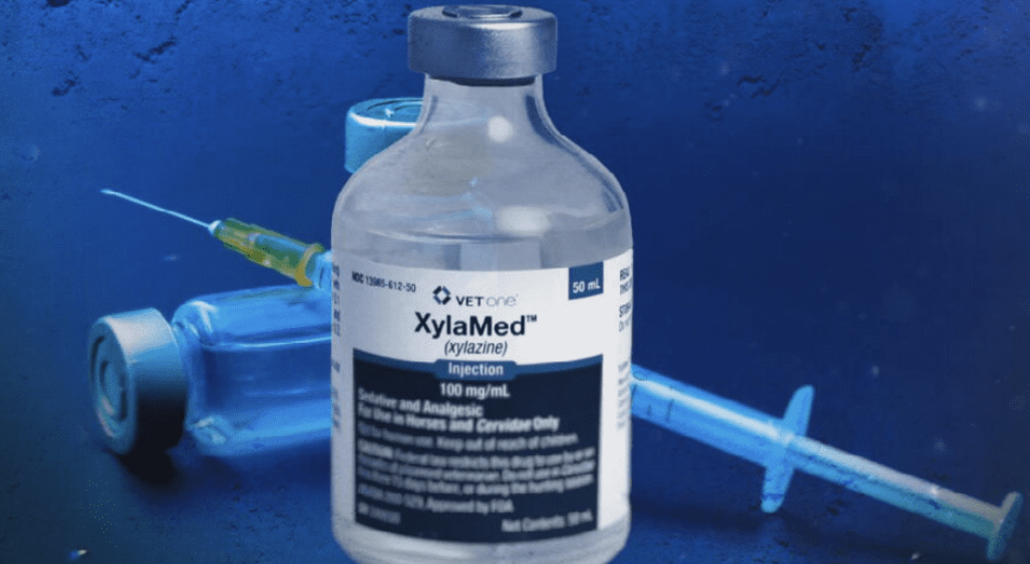Looking for suboxone doctors accepting UnitedHealthcare in PA? You’re in the right place. This guide will help you find Suboxone doctors across Pennsylvania who accept UnitedHealthcare, ensuring you get the treatment you need without worrying about insurance coverage.
Key Takeaways
- Suboxone treatment is accessible in Pennsylvania through UnitedHealthcare, which covers addiction treatment, including telehealth evaluations to overcome barriers faced by patients.
- Numerous in-network Suboxone providers are available in major cities like Philadelphia and Pittsburgh, offering both in-person and telehealth options to cater to diverse patient needs.
- Understanding UnitedHealthcare’s coverage details for Suboxone treatment is crucial for patients to manage out-of-pocket costs effectively while ensuring access to comprehensive care.
Can I find Suboxone doctors in PA who accept UnitedHealthcare?
Yes, you can find Suboxone doctors in Pennsylvania who accept UnitedHealthcare. UnitedHealthcare is a primary provider of Medicaid in Pennsylvania, which includes coverage for Suboxone treatment for opioid use disorder. This makes opioid addiction treatment more accessible to those who need it most. Many Suboxone doctors in Pennsylvania accept UnitedHealthcare, making it easier for patients to find the help they need without worrying about insurance compatibility.
Patients can start their Suboxone treatment process remotely, with evaluations conducted through telehealth appointments, following the same steps outlined in this guide on how to get prescribed Suboxone online. This is especially beneficial for those who may face barriers to in-person visits, such as transportation issues or living in remote areas. UnitedHealthcare’s services can also help verify eligibility for Medicaid and Suboxone treatment, ensuring that patients are aware of their coverage options. Key points include:
- Remote start of Suboxone treatment via telehealth evaluations
- Benefits for patients facing barriers like transportation or remote living
- UnitedHealthcare assistance in verifying Medicaid and Suboxone treatment eligibility
- Suboxone treatment often provided at no cost to Medicaid recipients in Pennsylvania, depending on prescription limits, reducing financial barriers
Patients can use several resources to verify if a UHC suboxone doctors is in-network. UnitedHealthcare’s provider directory, treatment directories like SAMHSA, and even direct inquiries to doctors’ websites are valuable tools in this process. Knowing that UnitedHealthcare covers Suboxone treatment can significantly ease the journey to recovery and provide peace of mind for those seeking help.

Where can I find UnitedHealthcare Suboxone doctors in Pennsylvania?
Pennsylvania is home to numerous Suboxone doctors who accept UnitedHealthcare, ensuring that patients across the state can access the care they need. Whether you’re in a bustling city like Philadelphia or Pittsburgh, or in one of the smaller towns or rural areas, there are options available for you.
The following sections will detail the availability of Suboxone doctors in major cities and regions in Pennsylvania, highlighting specific clinics and services that accept UnitedHealthcare.
Philadelphia
In Philadelphia, patients have access to a variety of Suboxone providers that accept UnitedHealthcare. For instance, the Philadelphia Recovery Center on Market Street offers comprehensive addiction treatment services, including Suboxone therapy. They provide both in-person and telehealth consultations, making it easier for patients to receive care without the need to travel long distances.
Another notable provider is the Liberty Clinic, located in the heart of Philadelphia, which specializes in addiction treatment and is an addiction treatment provider that accepts UnitedHealthcare. They offer a range of services, from initial assessments to ongoing therapy sessions and medication management.
These clinics, along with many others in Philadelphia, are committed to providing accessible and affordable suboxone treatment centers to those in need.
Pittsburgh
For those in Pittsburgh, UnitedHealthcare patients can find various Suboxone treatment options. The Pittsburgh Wellness Center on Fifth Avenue is a prominent provider that accepts UnitedHealthcare and offers both in-person and telehealth services for Suboxone treatment. Their comprehensive approach includes initial evaluations, medication management, and counseling services to support long-term recovery.
Additionally, the Allegheny Recovery Clinic in Pittsburgh provides specialized Suboxone treatment programs and accepts UnitedHealthcare insurance. They focus on personalized care plans that cater to the unique needs of each patient, ensuring effective and compassionate treatment.
With these options, Pittsburgh residents can access quality healthcare close to home.
Smaller cities and rural areas
Individuals in smaller towns and rural areas of Pennsylvania also have access to Suboxone treatment via telehealth, making care more accessible. UnitedHealthcare’s coverage extends to these regions, allowing patients to consult with Suboxone doctors remotely. This is particularly beneficial for those in underserved areas where in-person treatment options may be limited.
Telehealth platforms, such as Bicycle Health and Workit Health, provide online consultations and accept UnitedHealthcare for Suboxone care—ideal for patients searching for online Suboxone doctors. These platforms ensure that even patients in the most remote parts of Pennsylvania can receive the treatment they need without the added stress of long travel distances.
Does UnitedHealthcare cover Suboxone treatment?
UnitedHealthcare includes coverage for Suboxone treatment as part of its behavioral health benefits. This coverage is designed to support individuals with opioid use disorder by providing access to medication-assisted treatment (MAT), which includes Suboxone. Most UnitedHealthcare plans united healthcare cover suboxone, including uhc suboxone coverage, but the specifics can vary based on the type of plan, whether it is Medicaid or an employer-sponsored plan.

Coverage for office visits and therapy
UnitedHealthcare generally covers office visits related to addiction treatment, including those for therapy sessions. This coverage typically extends to the various components of medication-assisted treatment, such as doctor consults, medication, and therapy. However, the extent of uhc insurance coverage can vary based on the specific insurance plan. Counseling services associated with Suboxone therapy are often included in UnitedHealthcare’s coverage, providing a comprehensive treatment approach.
While the specifics of what UnitedHealthcare covers can vary, generic suboxone versions of Suboxone are usually classified as Tier 1 medications under UnitedHealthcare plans, making them significantly more affordable. Patients can reach out to UnitedHealthcare’s Substance Use Helpline for support and information about accessing Suboxone treatment and related services.
Cost estimate with UnitedHealthcare
The expenses for Suboxone treatment under UnitedHealthcare can vary based on deductibles and copayment structures specific to each plan. Patients can utilize UnitedHealthcare’s drug cost estimator to evaluate potential costs for Suboxone medications, ensuring they have a clear understanding of their financial responsibilities. Any co-pays or coinsurance for Suboxone treatment will depend on the specific benefits of the UnitedHealthcare plan selected by the member.
For those covered by Medicaid, will Medicaid cover Suboxone is a key question; treatment may be available at no cost, though some limitations may apply based on dosage and prescription frequency. Understanding these cost structures can help patients better prepare for their treatment journey and avoid unexpected financial burdens.
How to check if a Suboxone doctor is in-network
Confirming whether a Suboxone doctor is in-network with UnitedHealthcare is crucial to avoid unexpected costs. There are several methods to verify this information, including using the UHC portal, consulting the clinic’s billing staff, or checking the provider’s NPI (National Provider Identifier).
Ensuring that a provider is in-network can save patients significant sums and streamline the treatment process, providing a potential benefit.
Using UHC’s provider directory
UnitedHealthcare’s provider directory is an online tool that allows members to search for in-network Suboxone providers by location. Patients can filter their search results by specialty, such as addiction treatment, to find appropriate Suboxone providers.
The directory is updated regularly to ensure that patients have access to current information about in-network Suboxone doctors.
Call the clinic directly
Another reliable method to confirm if a specific Suboxone provider accepts your insurance is to contact the clinic directly. Verifying network status before booking an appointment can prevent surprise costs and ensure that you receive the full benefits of your UnitedHealthcare plan.
This step is essential to avoid financial surprises and ensure that your treatment is covered services by your insurance company.

Benefits of choosing an in-network Suboxone provider
Choosing an in-network Suboxone provider offers the following benefits, including lower out-of-pocket costs and access to comprehensive care. In-network treatment centers typically negotiate lower rates with insurance providers, making recovery more affordable.
Additionally, selecting an in-network provider ensures continuity of care, covering essential services like labs, therapy, and follow-ups.
Lower out-of-pocket costs
Choosing in-network facilities often leads to significantly reduced out-of-pocket expenses compared to out-of-network options. In-network providers typically reduce the financial burden on patients by covering a significant portion of treatment costs. Patients often benefit from lower co-pays and deductibles when they select a provider that is part of their insurance plan’s network.
In-network providers have pre-negotiated rates with major insurance companies, which lowers the overall costs for patients. This financial relief allows patients to focus more on their recovery journey rather than worrying about the costs associated with treatment.
Access to full MAT services
In-network clinics often bundle medication, therapy, and follow-up services, making the recovery process more manageable. These providers generally offer a comprehensive treatment plan that includes medication-assisted treatment, behavioral therapies, and ongoing support groups, as well as outpatient treatment, addressing mental health concerns. This compassionate approach ensures that patients receive all the necessary components of treatment under one roof, facilitating smoother and more effective recovery, including tailored mental health treatment plans.
Having access to a full spectrum of services at in-network clinics means patients can benefit from coordinated care plans that address all aspects of their substance use disorders and recovery needs. This comprehensive care model enhances the chances of long-term success and stability.
Telehealth Suboxone treatment with UnitedHealthcare in PA
UnitedHealthcare provides telehealth coverage in Pennsylvania, making it easier for patients to access Suboxone treatment remotely. Telehealth services are particularly beneficial for patients in rural regions or underserved areas, where access to in-person treatment may be limited.
These virtual outpatient programs allow patients to receive addiction treatment from the comfort of their homes, enhancing accessibility and convenience.
Approved online MAT providers
Several major telehealth platforms, such as Bicycle Health and Workit Health, accept UnitedHealthcare for Suboxone care in Pennsylvania. Ophelia is another notable platform that offers telehealth services for Suboxone treatment and collaborates with UnitedHealthcare.
These platforms provide patients with the flexibility to receive care without the need to travel long distances.
How telemedicine appointments work
Telemedicine appointments for Suboxone treatment typically include:
- An intake session where a clinician evaluates the patient’s opioid use history and develops a personalized treatment plan.
- Sessions are conducted remotely via voice or video calls, offering a convenient alternative to traditional in-person visits.
- During the initial treatment phase, daily virtual check-ins for adjustments and monitoring to ensure effective dosage and manage any side effects, including suboxone counseling.
These remote consultations also facilitate e-prescriptions for Suboxone prescriptions, which are sent directly to the patient’s pharmacy. Patients are routinely monitored through methods like urine screenings to prevent misuse and ensure adherence to the treatment plan. This model has proven effective for medication-assisted treatment of opioid use disorder and opioid use disorders, demonstrating positive outcomes in patient recovery. Healthcare providers can prescribe suboxone as part of this effective approach, including issuing a buprenorphine prescription when necessary.
What to expect during Suboxone treatment
Suboxone treatment is designed to relieve withdrawal symptoms and reduce cravings, aiding individuals in focusing on their recovery from opioid dependence while taking suboxone. The treatment process typically involves three main stages: induction, stabilization, maintenance, and suboxone use within a suboxone medication treatment program, including suboxone medication treatment.
Each stage is crucial for ensuring the effectiveness of the treatment and the long-term success of the patient’s recovery journey.
Initial evaluation and prescription
Before starting Suboxone, patients undergo the following steps:
- A thorough assessment, including their medical history and current withdrawal state.
- The initial dose of Suboxone is usually given when a patient is in early withdrawal to avoid severe reactions known as precipitated withdrawal.
- A comprehensive review of the patient’s medical history and physical examination to tailor an appropriate treatment plan.
Patients must provide informed consent before beginning Suboxone treatment, often asking questions like Does Suboxone get you high, to better understand the medication’s effects and potential risks. Regular monitoring during this phase is critical for adjusting dosages and ensuring effective management of side effects.
The maintenance phase of Suboxone treatment can last from several months to a lifetime, based on individual recovery needs and conditions.
Ongoing check-ins and therapy
During the maintenance phase, patients:
- Continue Suboxone while engaging in therapy to support long-term recovery goals.
- Have regular follow-ups that allow doctors to adjust the Suboxone dosage based on the individual’s withdrawal symptoms and cravings.
- Participate in ongoing sessions that may include counseling, which is essential for achieving comprehensive recovery from opioid addiction.
The frequency of appointments typically decreases as patients stabilize, transitioning from frequent visits to less regular check-ins. During these sessions, doctors may conduct drug tests and monitor any side effects to ensure the effectiveness of the treatment. This continuous care is crucial for long-term success and maintaining sobriety.
How to start Suboxone treatment if you have UnitedHealthcare
Starting Suboxone treatment with UnitedHealthcare involves several key steps:
- Verify the specifics of your UnitedHealthcare plan, as coverage for Suboxone can differ widely between plans.
- Contact UnitedHealthcare directly or use the chat feature on treatment provider websites to understand your coverage details.
- Check if your plan requires a referral from a primary care physician before you can start Suboxone treatment.
Next, follow these steps:
- Find a provider who accepts UnitedHealthcare.
- Confirm that your plan covers both the brand name and generic versions of Suboxone.
- Understand your potential out-of-pocket costs for Suboxone treatment, as coverage may include copays or not.
Finally, schedule an intake appointment with your chosen provider to provide relief and start your journey to recovery.
Bottom Line: Suboxone doctors and UnitedHealthcare in PA
Navigating the world of Suboxone treatment and insurance can be daunting, but with the right information and resources, it becomes manageable. UnitedHealthcare provides extensive coverage for Suboxone treatment across Pennsylvania, ensuring that patients have access to the care they need. By choosing in-network providers, patients can significantly reduce their out-of-pocket costs and benefit from comprehensive care packages that include medication, therapy, and follow-ups.
Whether you are starting your treatment journey or looking to switch providers, understanding your UnitedHealthcare benefits and knowing where to find the right Suboxone doctors can make all the difference. Remember, the first step towards recovery is reaching out for help, and with UnitedHealthcare, you have a reliable partner by your side. Take control of your recovery today and explore the options available to you under your UnitedHealthcare plan.
FAQs about Suboxone doctors and UnitedHealthcare in PA
Does UnitedHealthcare cover Suboxone treatment in Pennsylvania?
UnitedHealthcare does cover Suboxone treatment in Pennsylvania under its behavioral health benefits, applicable to both Medicaid and employer-sponsored plans. Therefore, individuals seeking this treatment can expect coverage through UnitedHealthcare.
How can I verify if a Suboxone doctor is in-network with UnitedHealthcare?
To verify if a Suboxone doctor is in-network with UnitedHealthcare, utilize the UnitedHealthcare provider directory, contact the clinic directly, or speak with the clinic's billing staff. This will provide you with accurate information regarding your coverage options.
What are the benefits of choosing an in-network Suboxone provider?
Opting for an in-network Suboxone provider ensures lower out-of-pocket expenses and access to coordinated services, enhancing the overall recovery experience. This choice facilitates comprehensive care, supporting a more effective treatment journey.
Does UHC Medicaid in PA cover Suboxone without any cost?
UHC Medicaid in Pennsylvania typically covers Suboxone treatment without any cost to the patient, though coverage specifics may differ. It is advisable to verify your individual plan for precise details.
Can I switch to a UHC plan that covers Suboxone during open enrollment?
Yes, you can switch to a UHC plan that covers Suboxone during open enrollment, as long as you meet the eligibility criteria and choose a plan that includes this coverage.
















